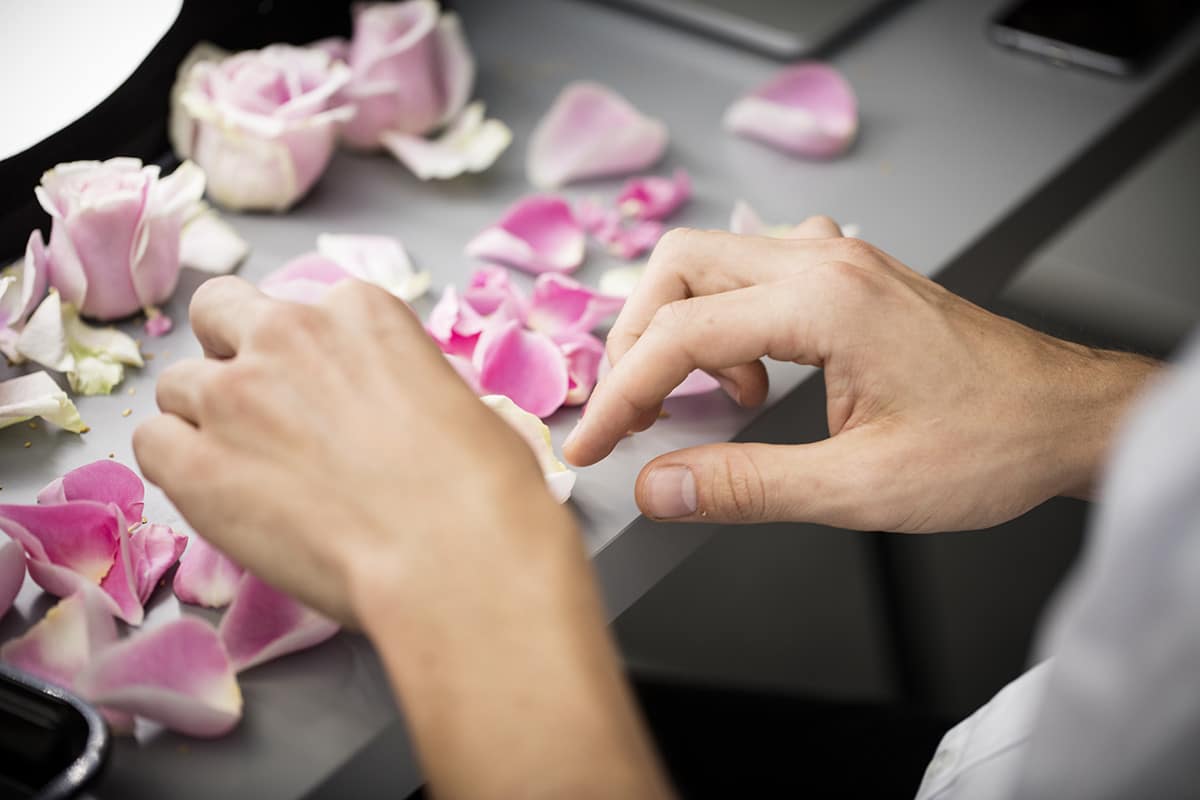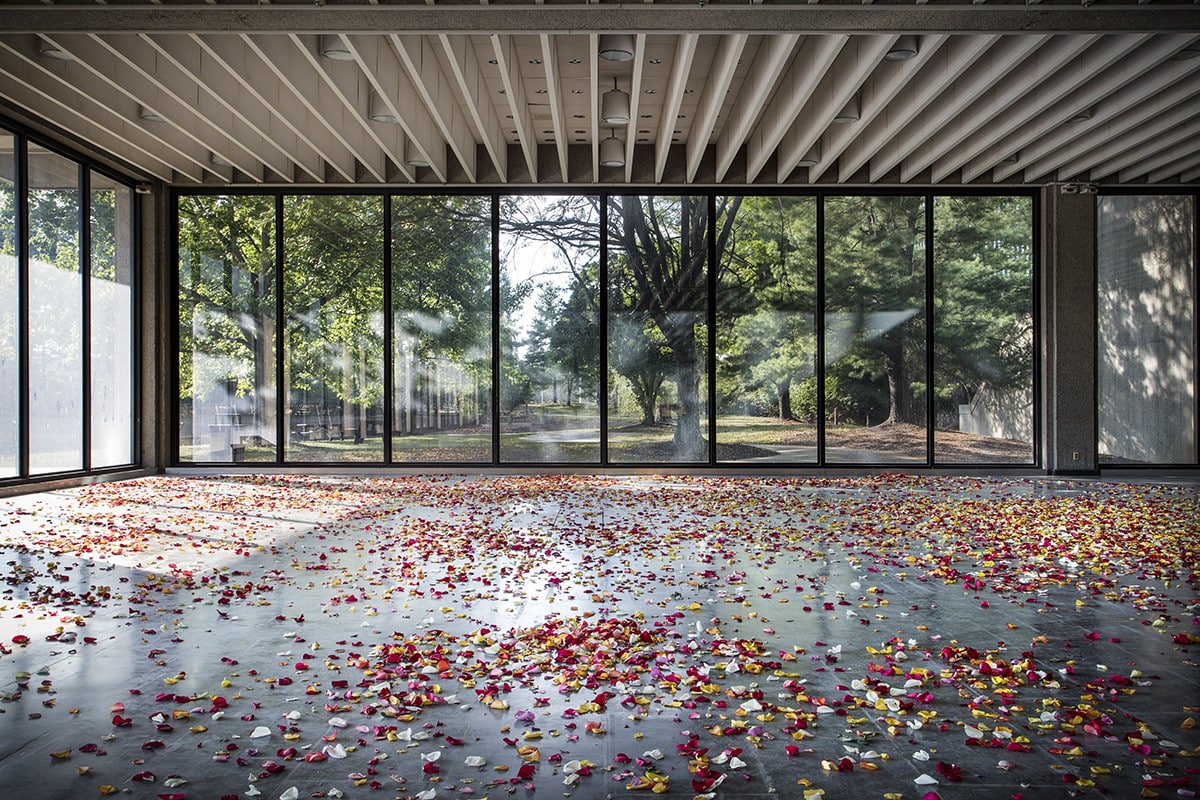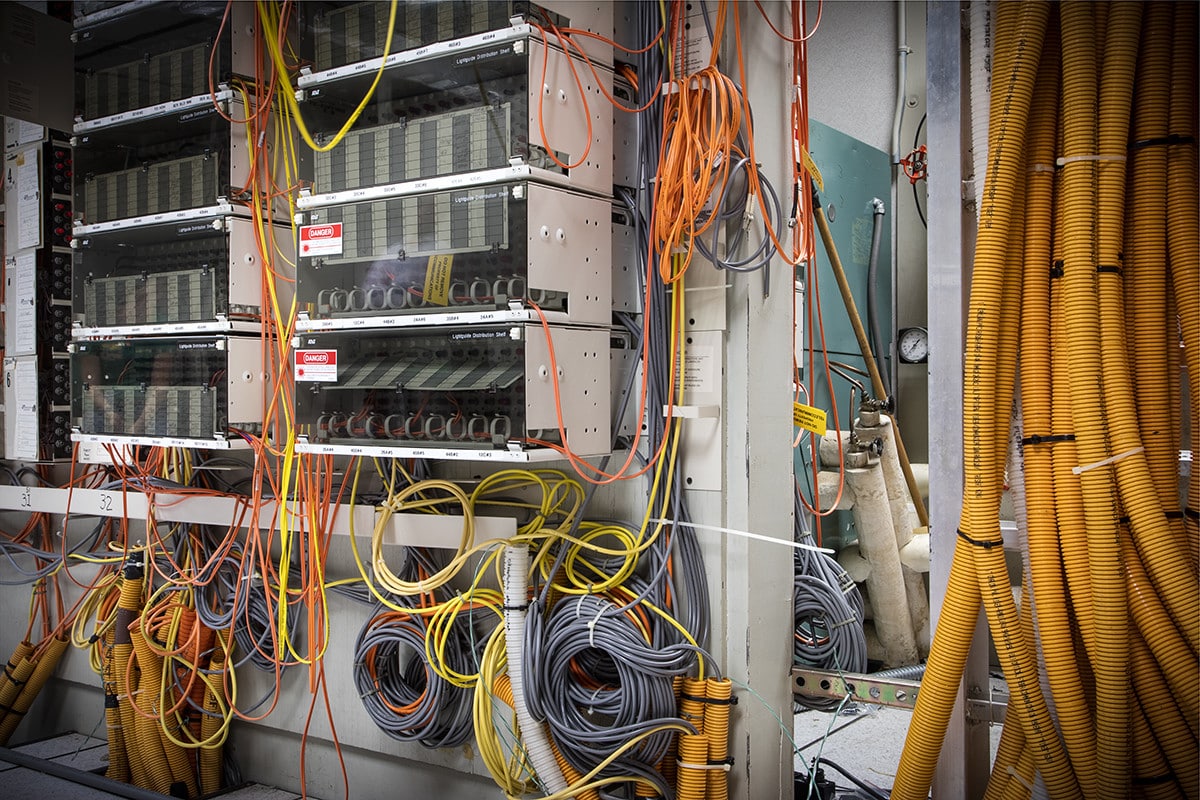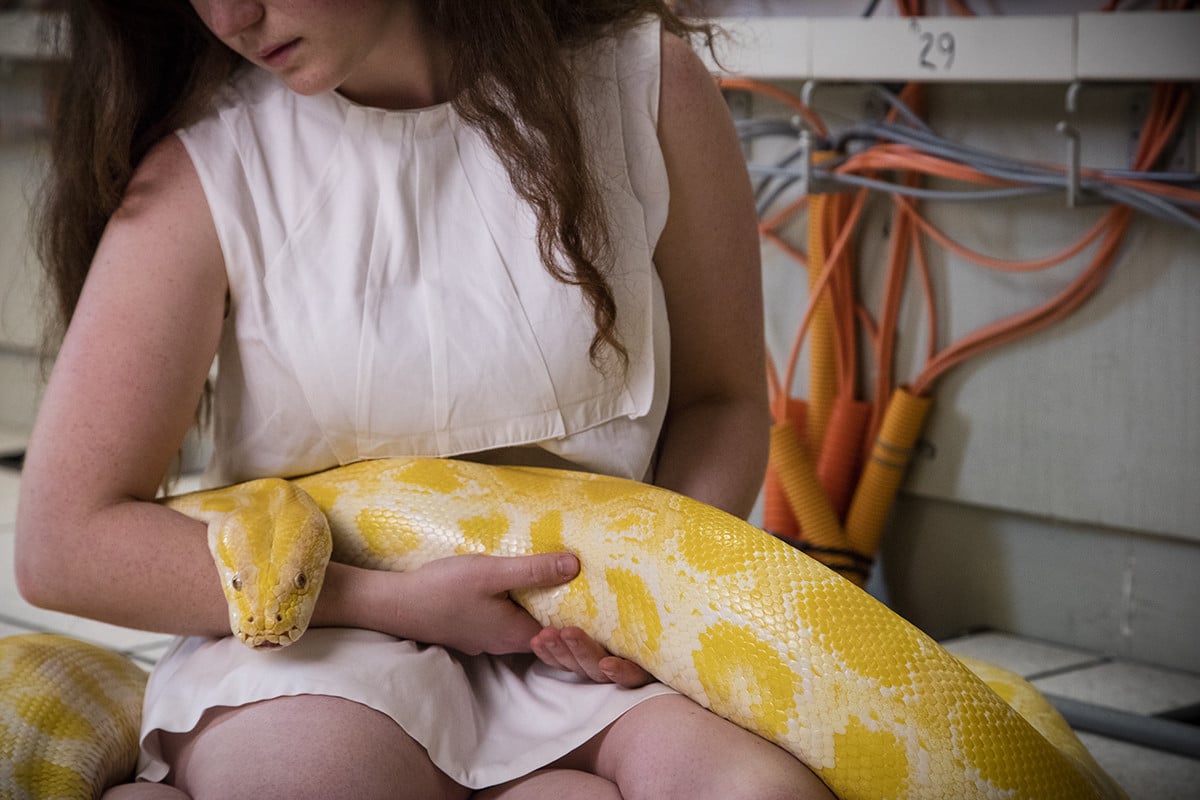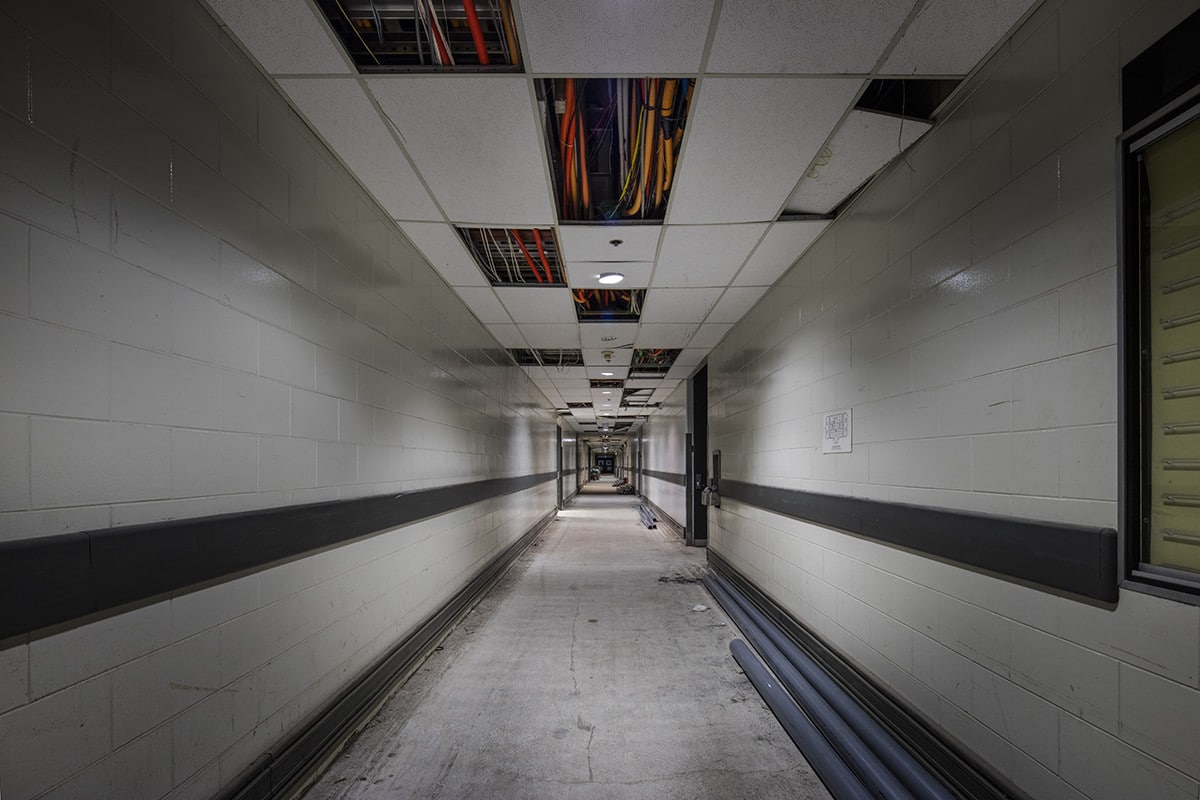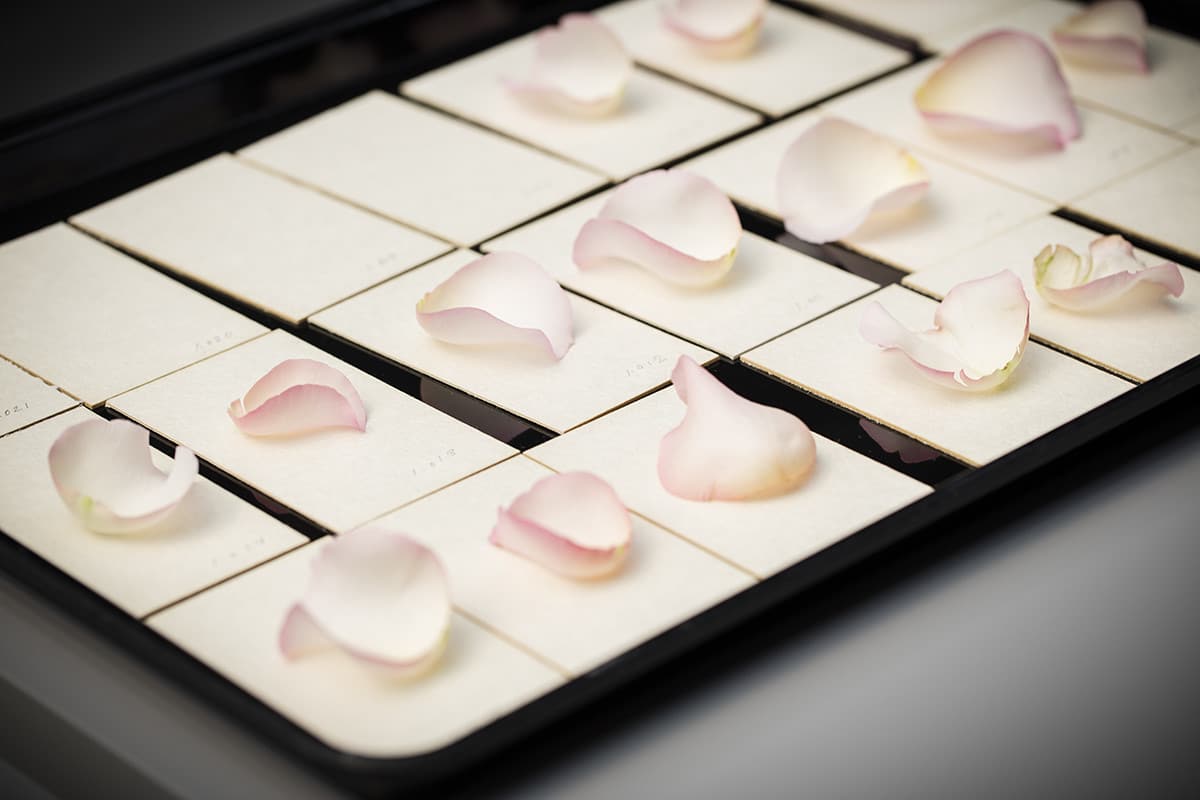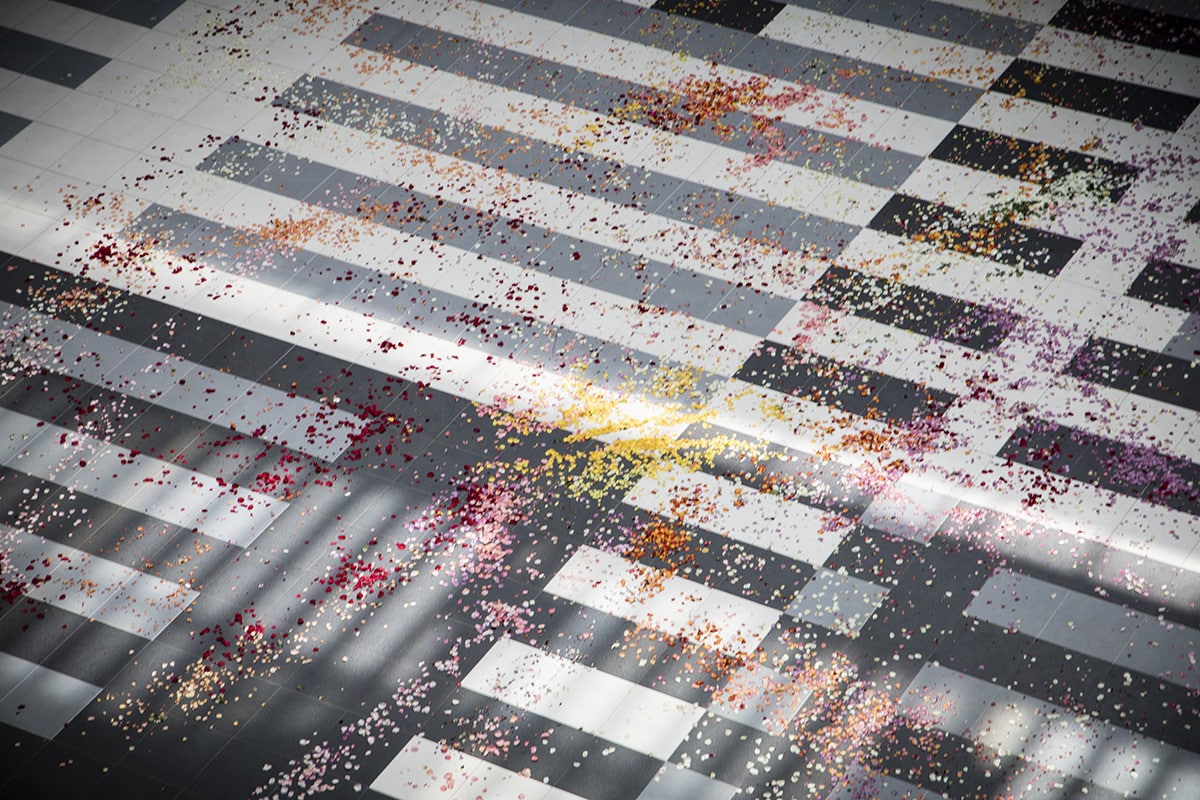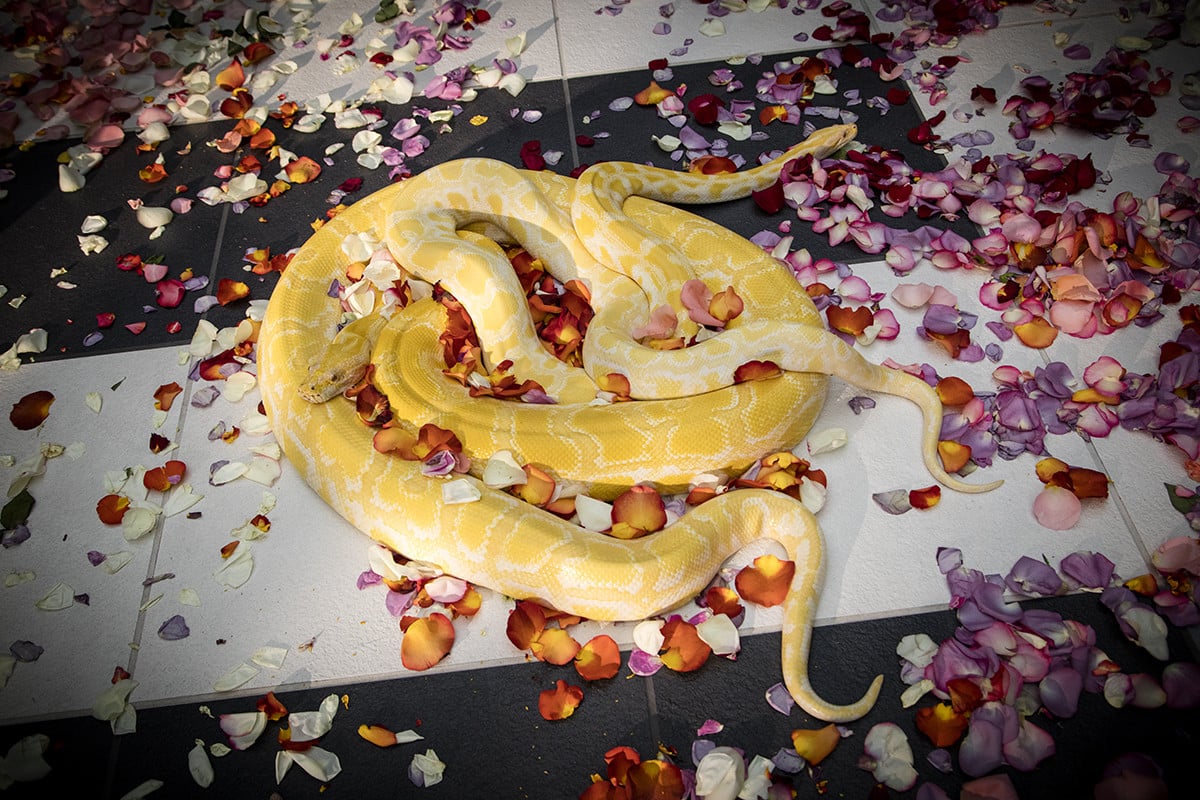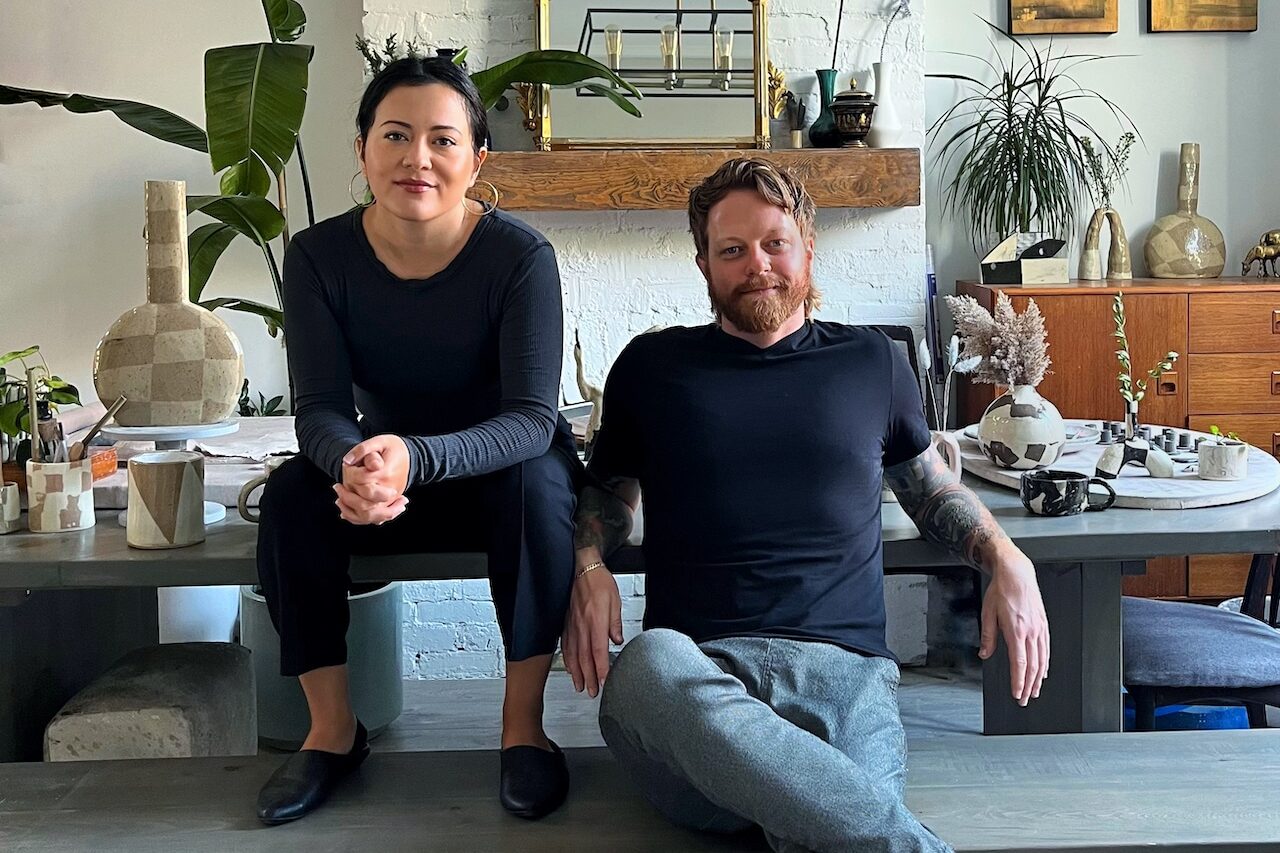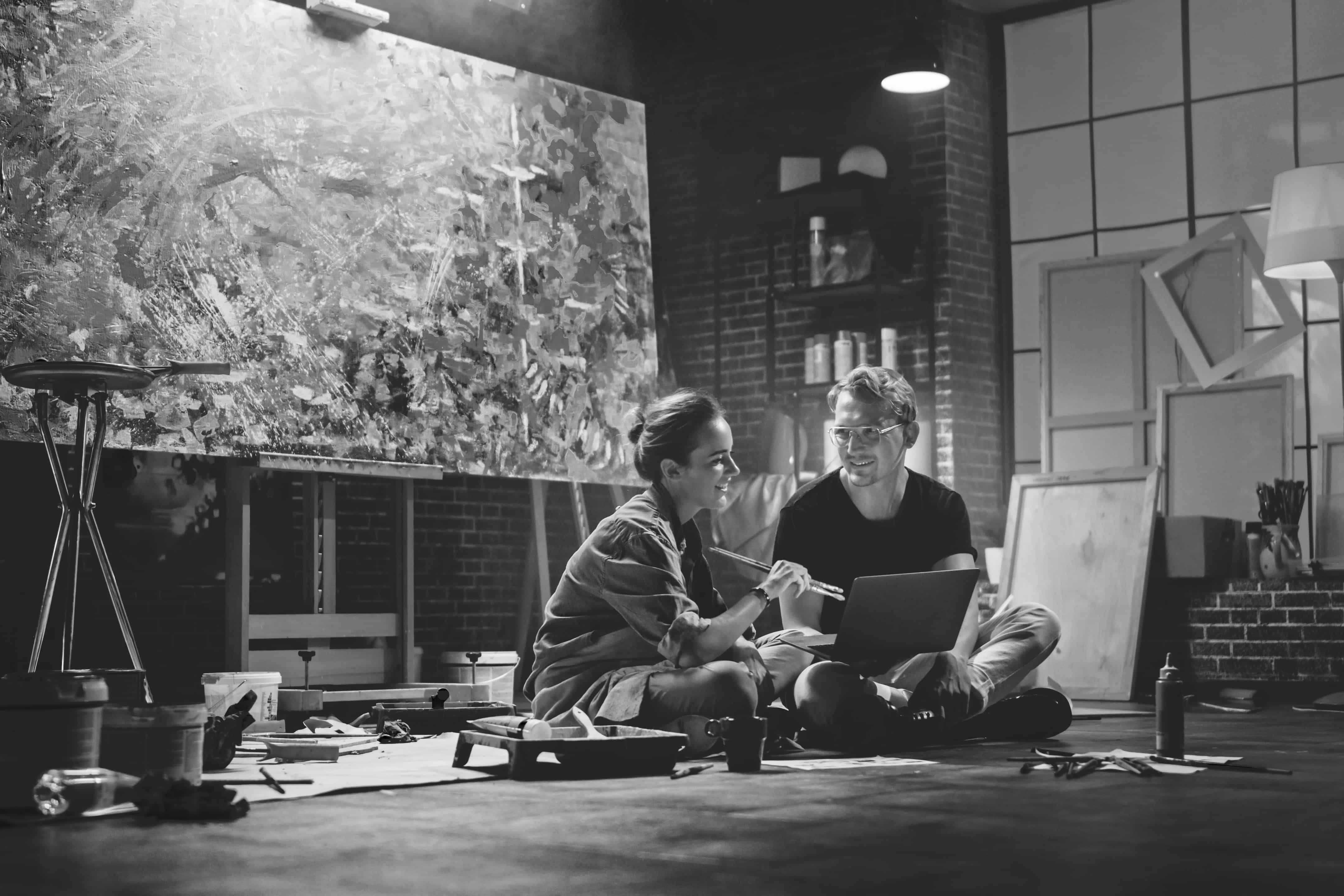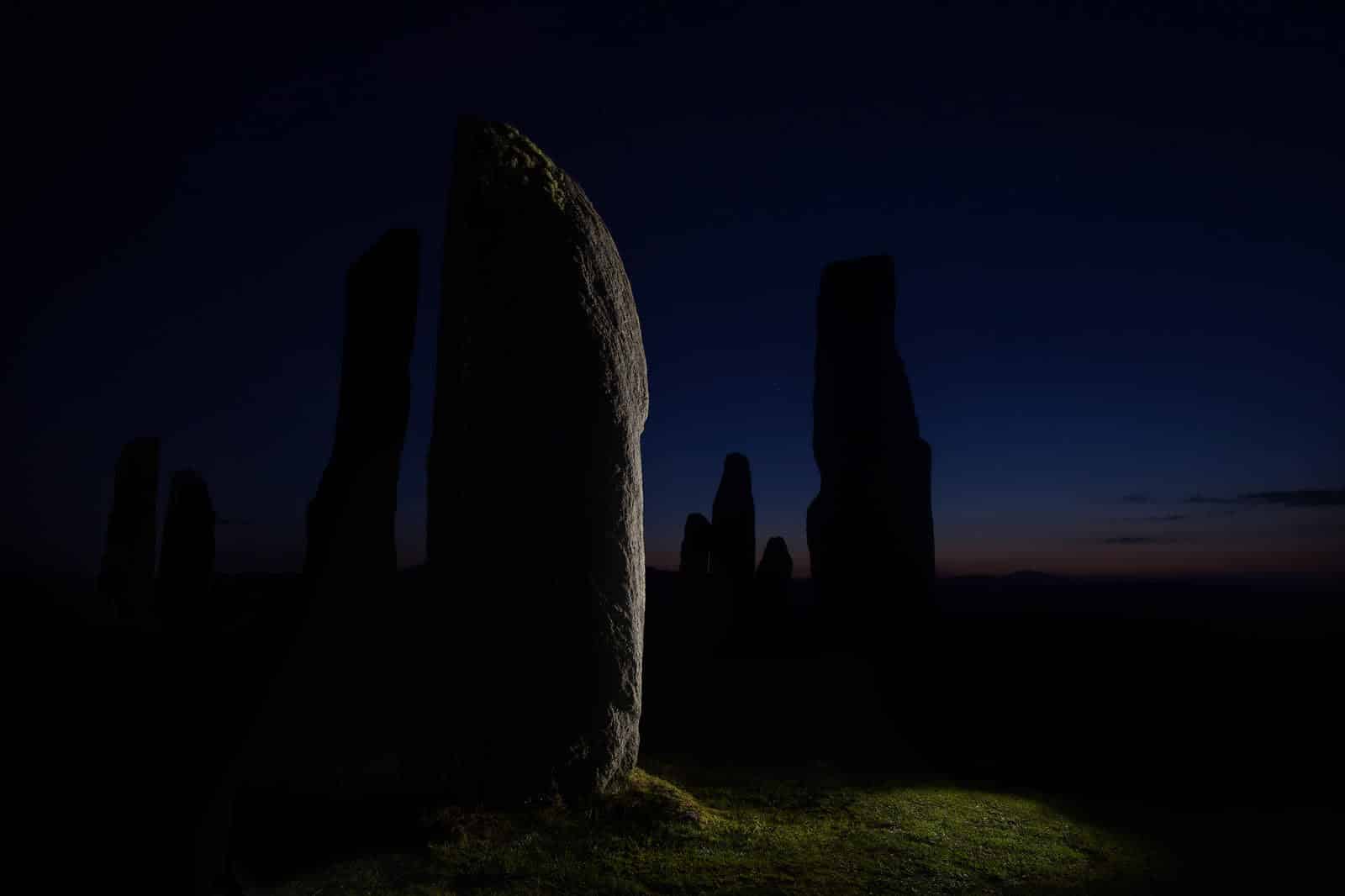Das Konzept für Wolke aus Blütenblättern kam zu Sarah Meyohas in einem Traum über Rosen und Pixel. Könnte man einem Computerprogramm beibringen, digitale Rosenblätter zu erstellen, die von echten Rosenblättern kaum zu unterscheiden sind?
Mit Hilfe eines generatives adversariales Netzwerkbegann sie mit einem groß angelegten Kunstprojekt, das die Wahrnehmung des Betrachters von digitalen und organischen Objekten herausfordert. In einer verlassene Forschungseinrichtung außerhalb von Manhattan, stellte sie 16 Leute ein, um 10.000 frische Rosen zu fotografieren. Die Arbeiter sollten von jeder Rose zehn Blütenblätter auswählen, die ihnen am besten gefielen. Dieser Prozess dauerte vier Tage, und Meyohas filmte das Ganze.
Sie nahm auch den Prozess auf, bei dem sie die digitalen Blütenblätter aus den Bildern der echten Blütenblätter generierte. Das Ergebnis, ein analoger Kurzfilm, funktioniert als eigenständiger Film ebenso wie als Dokumentation einer Aufführung. Wolke aus Blütenblättern Vorgeführt bei Unabhängige Régence in diesem Sommer in Brüssel, und das Projekt ist auch auf der Red Bulls Kunst New York vom 12. Oktober bis 10. Dezember 2017.
"Ich hätte so viel von dem Film fälschen können", sagt Meyohas über Skype, von ihrer gleichnamigen Upper East Side Galeriedas gleichzeitig ihre Wohnung ist. "Die Arbeiter hätten auch nur einen Nachmittag lang filmen können und nicht vier volle Tage. Ich musste keine 100.000 Bilder sammeln und musste auch kein generatives gegnerisches Netz erstellen. Ich hätte es mit Animationen vortäuschen können. Aber es ist echt."
Meyohas sagt, dass der Prozess des Fotografierens der Rosen inspiriert war von Google BücherGoogles Versuch, so viel gedrucktes Material wie möglich über gescannte Bilder zu archivieren. "Es ist derselbe Prozess. Aber anstatt eine Blume zu öffnen, öffnest du das Buch und scannst die Seite."
Trotz seines dokumentarischen Charakters ist Meyohas' Film Wolke aus Blütenblättern ist verträumt, sehr beunruhigend und wirft am Ende mehr Fragen auf, als es beantwortet. Sie sagt: "Blütenblätter zu erschaffen, die nie existierten - das ist der Versuch, die Natur zu erschaffen. Wir nutzen die Technologie, um uns von der Biologie zu emanzipieren. Was sind die Folgen davon?"
Meyohas' künstlerische Praxis umfasst ein breites Spektrum von Performance bis Fotografie. Am bekanntesten ist sie vielleicht für ihr digitales Projekt von 2015 Bitchcoinin dem sie eine digitale Währung schuf, die durch den Wert ihrer eigenen Kunstwerke gedeckt ist. "Es ist eine Wette auf Sarah Meyohas, die nicht verjährt", sagt die Bitchcoin Website steht. Mit ihrem Abschluss in Wirtschaftswissenschaften hat sie auch die Semiotik der Finanzen in Aktienkursentwicklung, ein Stück, das den Aktienmarkt manipuliert hat und zeichnete die Ergebnisse live auf der Leinwand auf. Wolke aus Blütenblättern bringt Meyohas' unterschiedliche Interessen - Körper, Wirtschaft, digitale Technologie - zusammen.
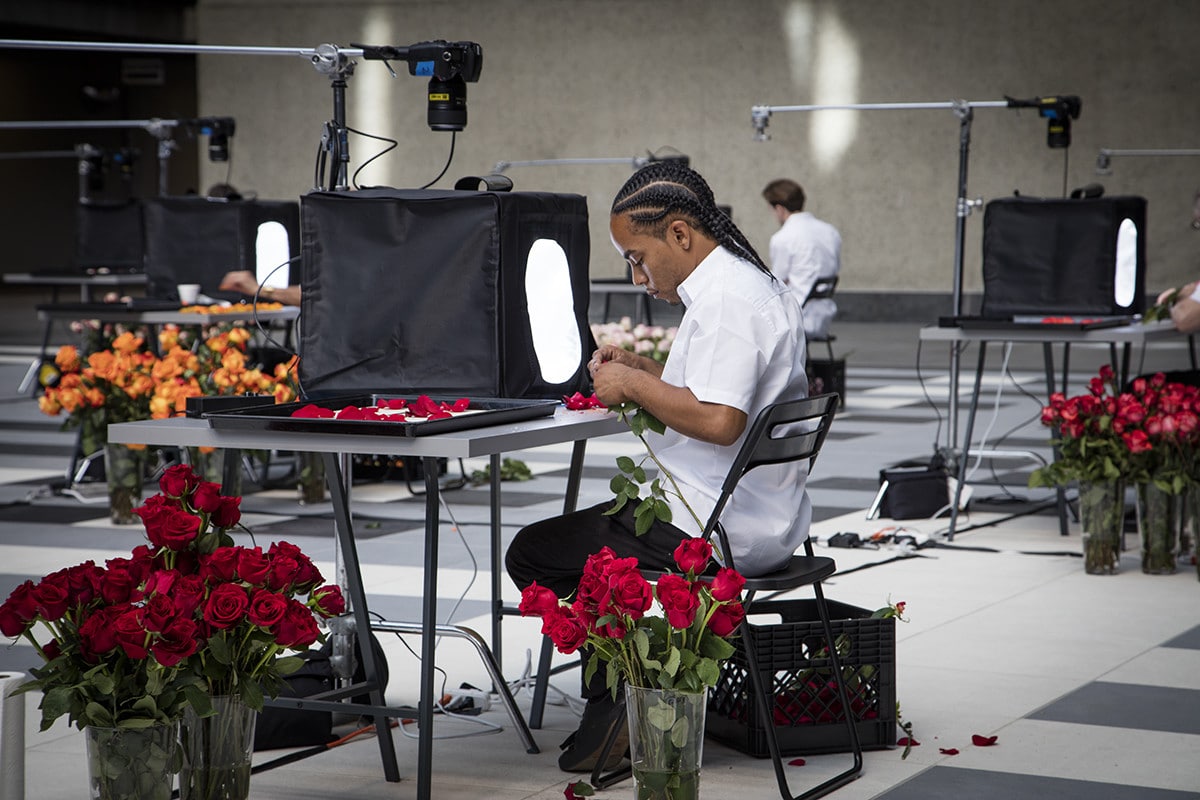
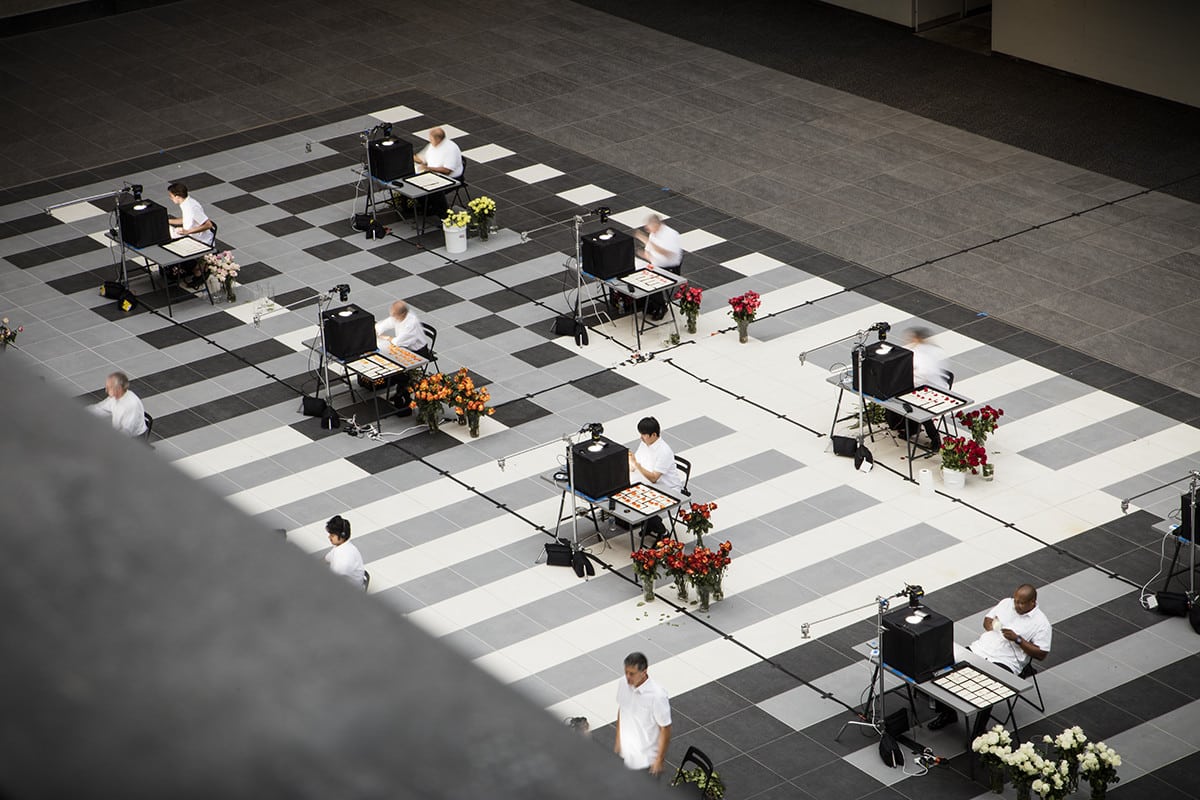
Aber warum gerade Rosen? "Die Rose", sagt Meyohas, "ist zu einem Symbol für Schönheit und Liebe geworden, und sie ist auch eine sehr kommerzielle und einfach zu züchtende Blume. Sie ist die Blume, die in Afrika, Südamerika und Europa wachsen kann, und wir haben sie so gezüchtet, dass sie in vielen verschiedenen Farbgruppen wächst."
Rosen, die Millionen Jahre alt sind, werden seit schätzungsweise 5.000 Jahren in Gärten kultiviert. Im alten Rom repräsentierte die Rose die Göttin Venus, und in den frühen christlichen Gesellschaften symbolisierten Rosen die Jungfrau Maria. Sie war auch die Nationalblume des Tudor-Englands. Trotz ihrer romantischen Assoziationen, Die Rose hat eine lange Geschichte als Symbol für einige der mächtigsten Kräfte der Zivilisation. Sie ist eine Blume der Gegensätze: Liebe und Kommerz, Religion und Regierung, Pixel und Blütenblätter.
Diskussionen über das digitale Leben sind immer mit Dichotomien behaftet: IRL versus Online, Freundschaften versus Facebook, Journalismus versus Fake News. Die digitale Technologie verändert sich so schnell, dass es unmöglich sein kann, mit all den verschiedenen Arten, wie sie unser Leben vermittelt, Schritt zu halten. Wir schaffen Parallelen wie diese, um die Fantasie einer Realität außerhalb des Internets zu bewahren, die von digitalen Technologien unberührt bleibt, eine reine Welt ohne die Gefahren von Snapchat, Gesichtserkennungssoftware und Politiker-Tweets.
Mit Wolke aus BlütenblätternMeyohas stellt diese Idee in Frage, indem sie die künstliche Grenze zwischen dem Digitalen und dem Realen aufhebt. Die computergenerierten Rosenblüten in ihrem Film sind nicht weniger real als die Spinnen und Fliegen, die vor der Kamera schweben - oder die Schlange, die ebenfalls auftaucht. Es ist eine dicke gelbe Python, die sich durch das Kabelgewirr des verlassenen Lagerhauses schlängelt, als wären es Lianen auf einem Waldboden. Die biblische Symbolik ist hier kein Zufall. Genau wie die Schlange im Garten Eden stört die Schlange im Video die scheinbar natürliche Ordnung der Dinge. Wolke aus Blütenblättern weist darauf hin, dass die natürliche Ordnung bereits nichts mehr als eine Fantasie ist.
Meyohas sagt, dass das Projekt Vergleiche mit der Arbeit von Taryn Simondie für ihre sorgfältig aufgebauten Archive bekannt ist. Allerdings ist der Archivierungsprozess in Wolke aus Blütenblättern ist willkürlich, eher organisch als organisiert. Schließlich geht es beim maschinellen Lernen darum, die Unvollkommenheiten des Lebens außerhalb des Bildschirms zu imitieren, auch wenn es digital ist. Im Gegensatz zu Simons Archiven, die oft darauf hinarbeiten eine Zeit und einen Ort bewahrenMeyohas' Archiv ist eine Form der Zerstörung.
"Die Blumen werden alle sterben, sie wurden gepflückt und abgeschnitten", sagt sie. "Bei der ganzen Sache geht es um den Tod. Die echten Rosen, die in Wolke aus Blütenblättern werden irgendwann verwelken, und die Bilder der digitalen Rosenblätter werden gelöscht oder beschädigt oder auf andere Weise durch den Vormarsch der digitalen Technologie unlesbar gemacht. Aber in Meyohas' Film sind sie so unvollkommen archiviert, dass es sich anfühlt, als könnten sie für immer existieren.
